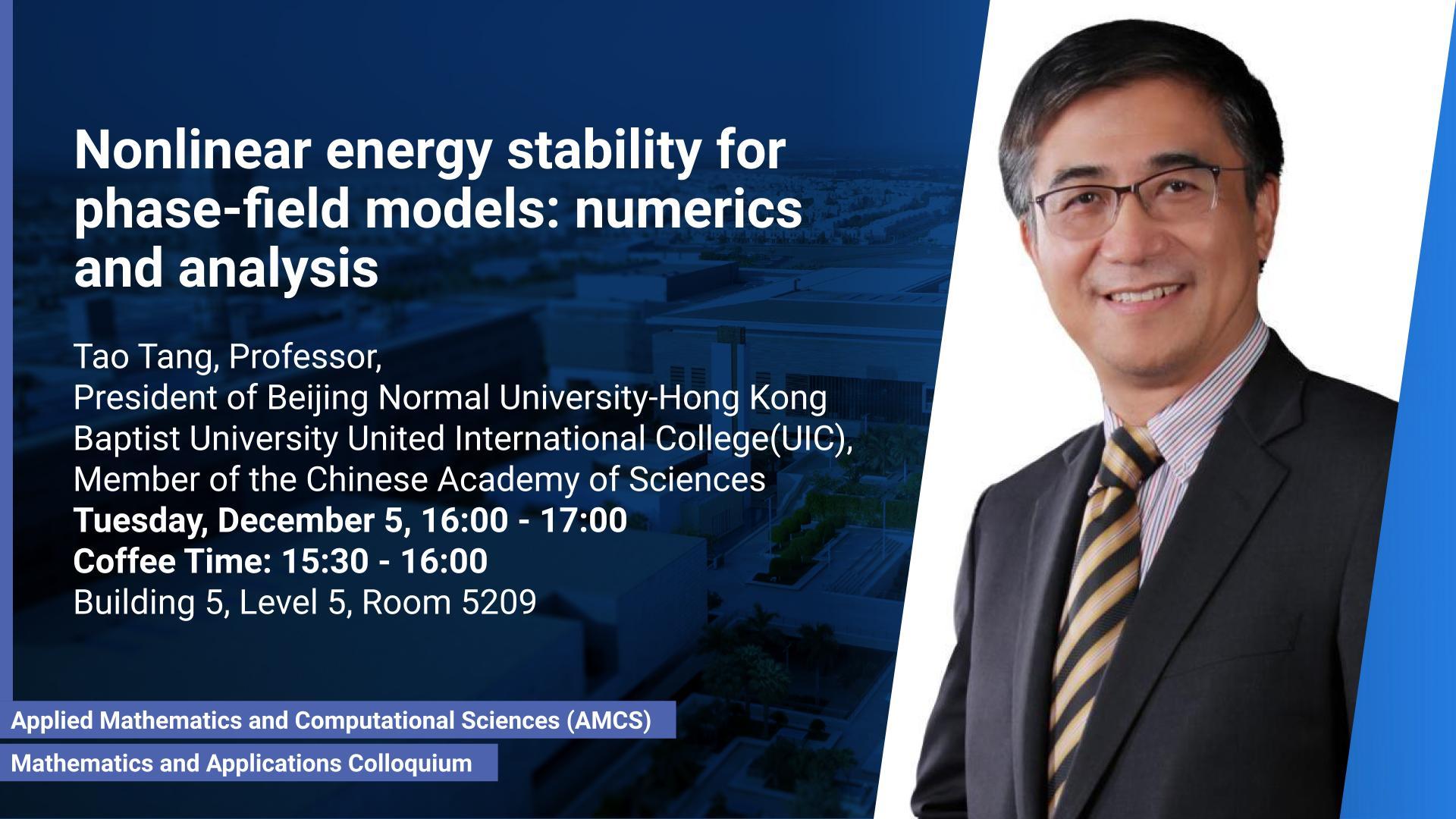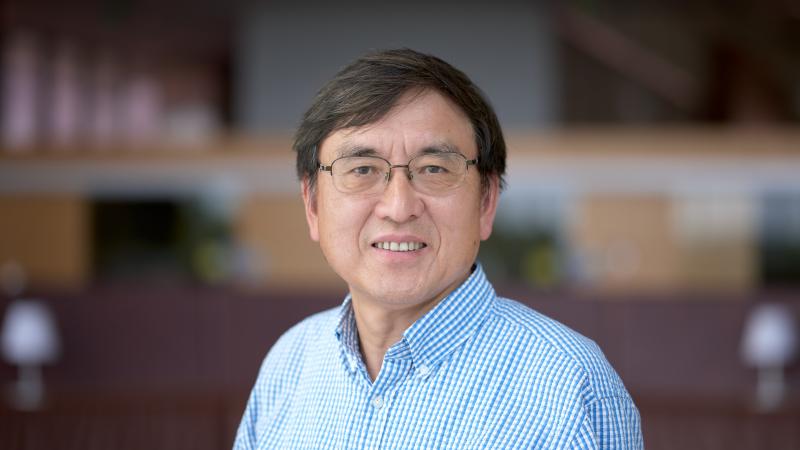Abstract
Coffee Time: 15:30–16:00
The phase-field model, a powerful modeling tool for dealing with interface problems, has been widely used in various fields such as computational physics, computational biology, materials engineering, and even image processing. The dissipation of free energy is an important and fundamental property of the phase-field model. Our research will focus on the following three aspects based on the energy dissipation of the phase-field model: (1) High-order and efficient numerical methods that satisfy energy dissipation; (2) Energy dissipation of the time-fractional phase-field model; (3) Theoretical research on operator splitting methods that ensure energy dissipation.
Brief Biography
Professor Tao Tang obtained his Bachelor’s degree in Mathematics from Peking University in 1984, followed by a Ph.D. in Applied Mathematics from the University of Leeds in 1989. He was the Dean of Science and Associate Vice-President of Hong Kong Baptist University, the Vice- President and Provost of the Southern University of Science and Technology (SUSTech). From 2019 to present, he has been the President of Beijing Normal University-Hong Kong Baptist University United International College (UIC).
Professor Tang was widely known for his expertise in the fields of computational mathematics and computational fluid dynamics. He was awarded the Leslie Fox Prize in Numerical Analysis, the Feng Kang Prize for Scientific Computing, the Natural Science Award by the Ministry of Education of China, and the National Natural Science Award of China. In 2018, he was invited to deliver an invited lecture at the International Congress of Mathematicians.
Professor Tang was elected as a Member of the Chinese Academy of Sciences in 2017 and a Fellow of the European Academy of Sciences in 2022. He was also elected as a Fellow of the American Mathematical Society (AMS), and a Fellow of the Society for Industrial and Applied Mathematics (SIAM).

